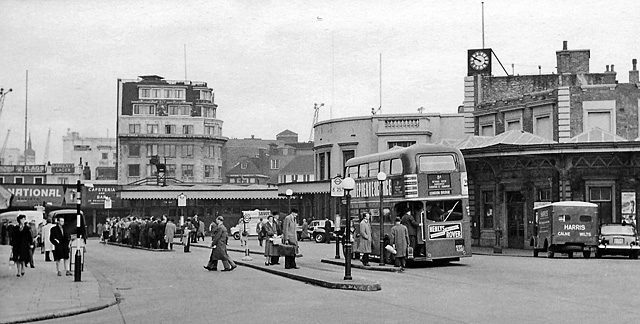Zhoosh. Otherwise known as zhoozh, zhuzh, zhush, zhoos, joosh, joozh, jujj, jeuje or tszuj.
That’s ten different spellings of a single word, and they’re all in common usage. Checking a dictionary doesn’t make things clearer. the Collins Dictionary and the Oxford English Dictionary use zhoosh, but also accept the alternative spelling zhuzh. The Cambridge Dictionary and The Merriam-Webster Dictionary use zhuzh, but also accept the alternative spellings zhoozh and zhoosh. Wiktionary goes with zhoosh, but also tszuj, zhuzh, zhoozh or jush.
Jush wasn’t on the original list. That brings us up to eleven.
What does zhoosh even mean?
You might not have read this word before (in one of its multitudinous forms), but you’ve probably heard it spoken aloud. It’s hard to explain how to pronounce it properly, so here’s a helpful video. The word starts and ends with the ‘zh’ sound in the middle of words like vision and fusion, with the ‘oo’ sound from good in between.
The word is usually used as a verb: to smarten something up, add a bit of style, and make it more attractive with a few tweaks. A hairdresser might zhoosh a customer’s hair by adding some product or salt spray. A fashion designer might zhoosh up a suit with a pocket square or colored shirt collar. Zhoosh, or zhuzh, describes the act of making slight improvements to breathe new life into something making the whole greater than the sum of its parts.

It can be used as a noun as well. When teasing one’s hair, a stylist gives a quick zhoosh, or maybe a quick zhuzh. With a bit of a twist, it can also be used as an adjective. Zhooshy describes a person who looks attractive, appealing, and classy. To zhoosh a person is to make them zhooshy. Naturally, an already zhooshy person doesn’t need to be zhooshed!
Why is zhoosh so hard to spell?
This word rose to prominence in the early 2000s, thanks to Queer Eye for the Straight Guy. This television series starred a team of gay professionals performing total makeovers on straight, unfashionable men. One of these professionals was Carson Kressley, the original fashion guru. He often talked about zhooshing his subject—it was Kressley’s go-to word.

Viewers adopted the word and found themselves using it as part of their own vocabulary. But they ran into a problem when they wanted to write it down. They’d never seen the word on paper—they’d only heard Kressley speaking it aloud. Their only option was to take a gamble, throw down a handful of letters, and hope they got it right!
With other words, this gamble might have been easy. But zhoosh contains some very ambiguous sounds. In English, the ‘zh’ sound appears in casual as an ‘s,’ in rouge as a ‘ge,’ and in azure as a ‘z.’ It’s also a common sound in French, with names like Jacques and Jean using the letter ‘j,’ and in Russian too, with Doctor Zhivago spelled with a ‘zh.’ And what about the ‘oo’ in the middle of the word? Good uses an ‘oo,’ but push uses a ‘u.’
Because of all this, when people first tried to write the word zhoosh, they all came up with different spellings. The web was flooded with a confusing mishmash of variations, and there was no way to know which version, if any, was correct.
In 2004, Carson Kressley himself weighed in on the issue during an interview with the Sydney Morning Herald. He first heard the word used by Ralph Lauren, whose family originated in Belarus (his real name is Ralph Lifshitz). Kressley theorized that this English word had Eastern European roots, and assumed that the word was spelled tszuj, in accordance with Belarussian spelling conventions. During an interview with Salon TV in 2019, he doubled down on this theory.
These interviews should have put an end to the debate. But there was one major problem: apart from Kressley’s personal theory, there’s no evidence to suggest that zhoosh comes from Eastern Europe. Instead, most linguists believe the word developed in England, as part of a secret language called Polari.
Secret languages usually develop among ostracized groups at the edges of mainstream society. Polari was used by the gay community of 20th century England when homosexuality was still illegal, and a secret vocabulary of words and phrases was the safest way to converse in public. Polari was abandoned when homosexuality was officially legalized, but some words survived in common usage.

One of these words was zhoosh. According to the Oxford Dictionary, the earliest ever print use of the term was in a 1977 edition of a British publication called Gay News: “We would zhoosh our riahs, powder our eeks, climb into our bona new drag, don our batts and troll off to some bona bijou bar.” These unusual words are examples of the Polari language. If you’d like to make sense of them, there’s a glossary on Wikipedia.
Does this end the spelling debate?! Not quite.
Polari is not so much an invented language as one that borrows heavily and changes words from other sources, such as Cockney Rhyming Slang, Romani, and Italian. Of these different options, Romani is probably the likeliest source of zhoosh. Romani includes the word zhouzho, meaning clean or neat, which aligns quite nicely.
But this origin is far from certain, and near impossible to prove. The speakers of Polari were hardly keeping notes on etymology, and any attempts to trace these words will always be based on supposition. Another theory claims that zhoosh is a mispronunciation of “Jewish” based on the high reputation of Jewish tailors in 20th-century Britain. Others believe that the word was originally an expressive formation, perhaps a portmanteau of zoom and whoosh.
In other words, nobody knows where zhoosh comes from, making it hard to establish a proper spelling. Instead, people will probably continue to spell this distinctive sound in their own way. It’s actually rather freeing. There aren’t many words in the English language you’re pretty much welcome to spell whichever way you want!


